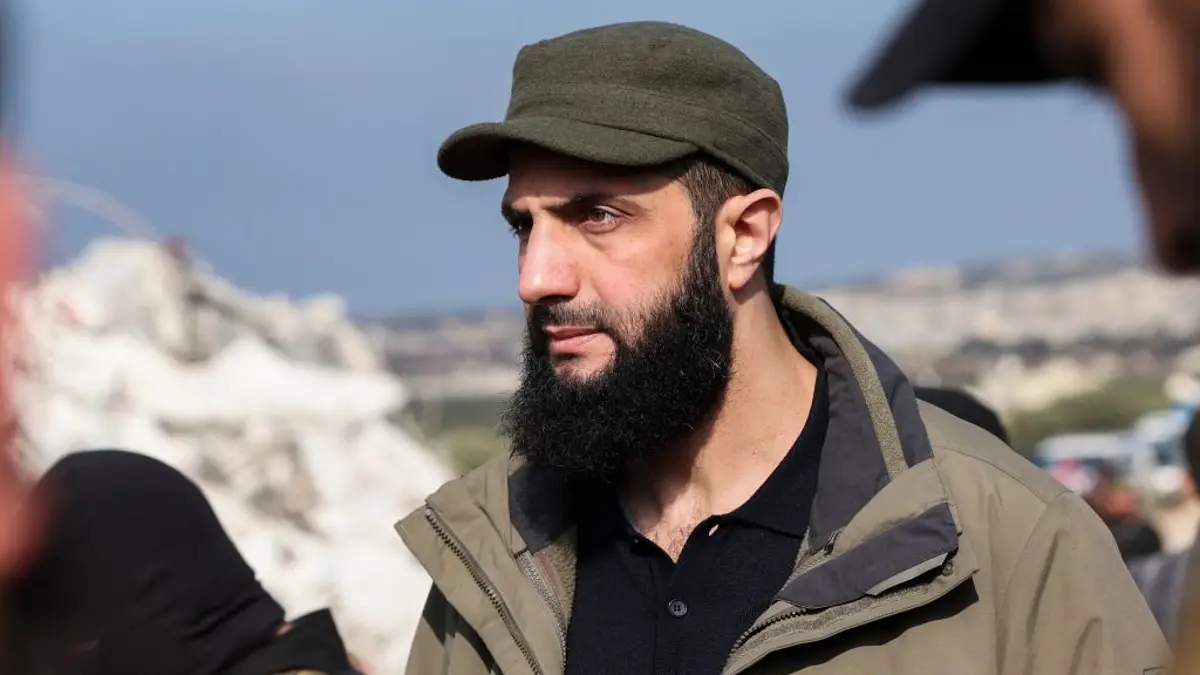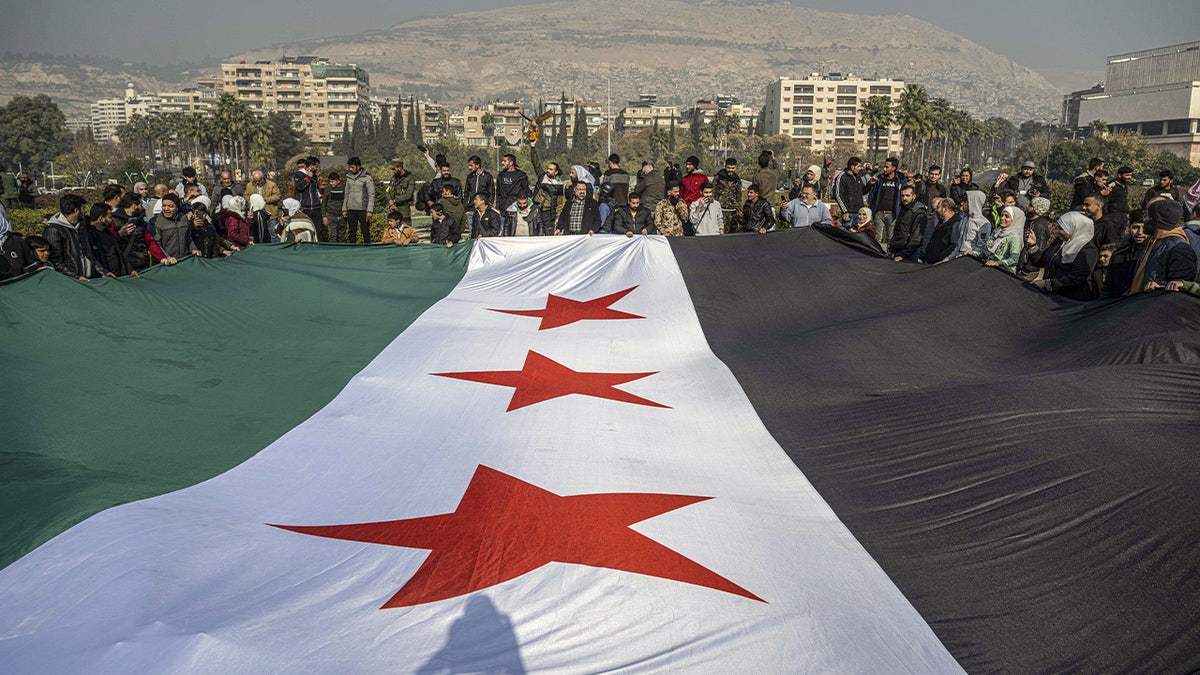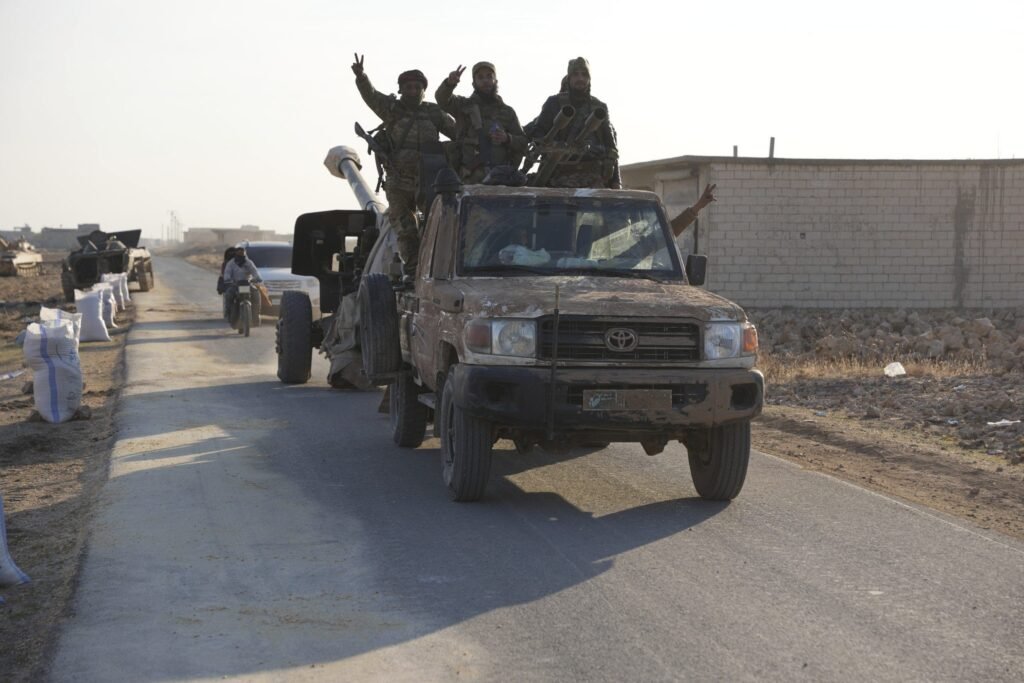A new government is taking shape in Syria following the fall of Bashar al-Assad, and many are wondering whether it will moderate its Islamist stance or, as some have predicted, how the Taliban will function in Afghanistan.
The US-designated terrorist group Hayat Tahrir Al-Sham (HTS) had ruled Idlib governorate in northwestern Syria and established its own regime called the Syrian Salvation Government, saying it had abandoned its global jihadist goals and instead focused on local governance. In Idlib, HTS created a bureaucratic system and various ministries to manage some public services, including public security.
“By all accounts it was ruled with an iron fist,” Natasha Hall, senior fellow in the Middle East program at the Center for Strategic and International Studies, told Fox News Digital.
At its peak, HTS ruled over approximately 2 million people in Idlib province. His leader, Mohammed al-Golani attempted to rename HTS and distance the group from the global jihadist elements of al-Qaeda, instead focusing on local issues in Idlib.

Rebel forces captured the Mengh air base and the town of Tel Rifaat in the Aleppo area on December 1, 2024, after clashes with the Syrian Democratic Forces and Syrian regime forces. (Photo by Rami Alsayed/NurPhoto via Getty Images)
Questions still remain about how al-Golani would govern all of Syria. Some Syrian observers who monitored the groups’ recordings in Idlib warned that HTS is not a democratic regime.
Hall, an expert on Syria, said HTS has engaged in mixed behavior in Idlib, including expelling Christians, although Hall noted that she personally knows of religious minorities, including Alawites, living peacefully in Idlib.
Other aspects of their rule in Idlib are more worrying.

People wave weapons in the air as they gather in Umayyad Square in Damascus, Syria, on December 8 to celebrate the overthrow of the Syrian regime. (Ali Haj Suleiman/Getty Images)
Assad arrives in Moscow and receives asylum from Russia
“With an iron fist, HTS tried to eliminate dissent when there were protests against them. It was reported that they had killed a famous political activist, Raed Fares. There have also been recent protests in Idlib over people who have died. “Detention under HTS custody,” Hall said.
HTS had little tolerance and was known for suppressing political dissent. Hall also noted that she personally knows of people who have been “beaten up” by HTS militants.
Golani softened strict interpretations of Islam and limited the power of the feared morality police who policed women’s public wardrobe. According to Hall, the problem is not necessarily HTS’s previous record Governance in Idlibbut the power vacuum that will arise after the fall of Assad.

Hayat Tahrir al-Sham chief Abu Mohamed al-Golani checks the damage after an earthquake in the village of Besnaya in the rebel-held northwestern province of Idlib on the border with Turkey, February 7, 2023. (Photo by Omar HAJ KADOUR / AFP)
“Everyone will seek power and influence,” Hall said, adding that the U.S. and the West must mitigate risk and ensure a more stable and peaceful future for Syria and deal with the vulnerabilities of any potential governing group.
Tammy Palacios, program manager of the Priority Sustainable Counterterrorism program at the New Lines Institute and who has been closely monitoring Syria, noted that while al-Golani made significant efforts to move away from his jihadist past, moderation at other levels of the HTS was less clear be.
HTS security forces in Idlib were known to “arrest, convict, torture, imprison and kill individuals exercising control as part of Sharia enforcement.” Parts of the HTS government in Idlib also educated and influenced the population in accordance with a harsh interpretation of Sharia law.
The lack of information on chemical weapons in Syria is “extremely worrying,” a UN official says
After the fall of the Assad dynasty, HTS established an interim government, the so-called “Syrian Salvation Government,” and appointed an interim prime minister, Mohammed al-Bashir. HTS leader al-Golani and the interim prime minister met in the final months of the Assad regime with Syria’s former prime minister, Muhammad Ghazi Al-Jalali, who chose to remain in his home in Damascus after the fall of the government.
During their lightning-quick two-week period Advance to conquer SyriaHTS promised to protect the rights of all Syrians, regardless of faith or ethnicity, and also promised to protect Shiite religious sites. When the rebels finally entered Damascus and Assad fled, al-Golani ordered his fighters not to attack ministries and, along with Jalali, ensured that the government’s day-to-day work continued.

Syrians gather at Umayyad Square to celebrate the collapse of the Baath Party’s 61-year rule in Damascus, Syria, on December 9, 2024. (Murat Sengul/Anadolu via Getty Images)
Al-Golani, who has a $10 million bounty on his head from the United States, is trying to present a watered-down version of the radical Islamism that has characterized his years of fighting in Syria and Iraq against American troops. Al-Golani was captured by the US military in the first decade of this century. When the Syrian uprising against Assad broke out, al-Golani founded a new organization called Jabhat al-Nusra.
He had also once pledged allegiance to al-Qaeda leader Ayman al-Zawahiri, but officially cut ties with the group in 2016 and Nusra became HTS in 2017. Many HTS observers at the time criticized the break as superficial, but al-Qaeda actually condemned the creation of HTS, which led to further divisions between the groups.
While HTS ruled Idlib in northeastern Syria, the group targeted its rival Islamist groupsincluding Ahrar Al-Sham, Hurras Al-Din and other jihadist groups linked to Al-Qaeda and ISIS. Similar to the US’s negotiations with the Taliban in Afghanistan, combating terrorism and ensuring that Syria does not become a safe haven for terrorists will be a prerequisite for recognition by the US and other allies.
Secretary of State Antony Blinken confirmed on Saturday that the US had been in direct contact with HTS since the fall of Bashar al-Assad’s regime. HTS has already said it will work with the US in the search for Austin Tice, the American journalist missing in Syria since 2012 and believed to be held captive by the Assad regime. The rebel group’s initial contact and its promise to work with the U.S. to bring Tice home could further legitimize the group as it seeks to consolidate its control over post-Assad Syria.

A photo taken on December 3, 2024 at the entrance of the Kweyris military air base in the eastern part of Aleppo province shows a portrait of Syrian President Bashar al-Assad and a national flag in a dumpster following the takeover of the area by rebel groups. (Photo by RAMI AL SAYED/AFP via Getty Images)
The US and UK are considering removing HTS from their foreign terrorist lists, which will be important as HTS consolidates its rule over Syria. Hall says HTS needs to create a checklist to implement in order to be removed from the terror list.
CLICK HERE TO GET THE FOX NEWS APP
“It is critical now, and it is important to do it quickly, because if a designated terrorist group rules a country, it could have devastating humanitarian and economic impacts the likes of which we have not seen in the last decade,” she said .
Benjamin Weinthal of Fox News Digital contributed to this report.





